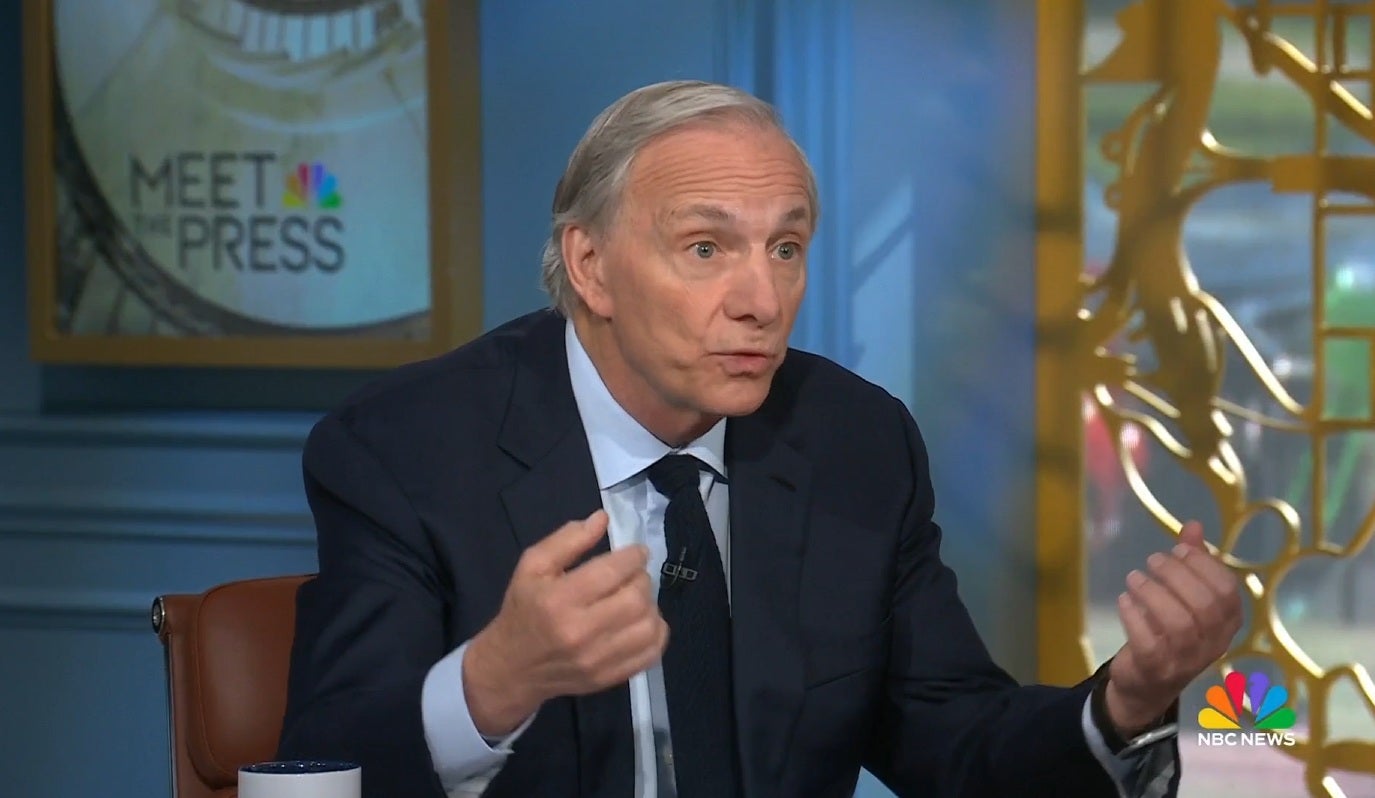The U.S. is perilously close to entering a formal economic recession and could well be facing something much worse on the horizon, a billionaire investing expert warned Sunday.
Ray Dalio, founder of Bridgewater Associates, appeared on NBC’s Meet the Press, where he warned that the “disruptive” nature of Donald Trump’s tariff announcements were causing market instability and was making it difficult for both U.S. business and global trading partners to rely on the America.
A Wall Street veteran who predicted the collapse of the housing bubble in 2008 which caused a financial crisis that year, Dalio told NBC’s Kristen Welker that the chance of stopping “something that is much worse than a recession” came down to how strategically the White House handled what the president’s advisers have explained is his end goal: a grand reorganization of the global trade structure.
“We are having profound changes in our domestic order […] and we’re having profound changes in the world order. Such times are very much like the 1930s,” said Dalio.
“So if you take tariffs, if you take debt, if you take the rising power challenging existing power, if you take those factors and look at the factors – those changes in the orders, the systems, are very, very disruptive,” he continued. “How that’s handled could produce something that is much worse than a recession. Or it could be handled well.”
Dalio – who has a net worth of $14 billion – repeated what he has on several occasions warned: that he believes the growing US federal debt, now at more than $36 trillion, is a ticking time bomb that will hinder the U.S.’s ability to spend and borrow in the future.
“We have a breaking down of the monetary order,” Dalio warned. “We are going to change the monetary order because we cannot spend the amounts of money [we want].”

He continued: “I believe that members of Congress should take the pledge, what I call the 3 percent pledge. That in one way or another, that they will get that budget deficit down to that number. If they don’t, we’re going to have a supply/demand problem for debt at the same time as we have these other problems. And the results of that will be worse than a normal recession.”
His warnings come after days of instability on the stock market, driven by plunging tech stocks and other industries hit by the White House’s new tariffs and vexed by the constantly-changing nature of the policies themselves.
Late Friday evening, Trump’s Customs and Border Protection agency issued a notice exempting smartphones, solar cells and other imports relevant to America’s tech sector from both sky-high “reciprocal” tariffs on China and his lower baseline tariff rate of 10 percent on all imported goods. It was a win for companies such as Apple, but one that was deadened Sunday when Commerce Secretary Howard Lutnick warned that those tariffs would be reimposed within one to two months.
It remains unclear whether the president will leave in place the remainder of his much-maligned “reciprocal” tariff rates against dozens of U.S. trading partners including the E.U., Japan, Canada and Mexico, or whether Trump will be talked into backing down in part or whole as he has in repeated recent instances. Trump Cabinet officials and White House advisers have been unable to give a clear answer as to whether those tariffs or the president’s across-the-board 10 percent tariff rate are simple negotiation tactics and could be rolled back, or whether they will remain in place for the duration of his term.

Other industry leaders have recognized what White House officials repeatedly claim: that the tariffs are at least semi-permanent as the president seeks to force U.S. companies and foreign investors to onshore production and manufacturing in the U.S. in order to sustainably access American markets.
“What we’re seeing now is a structural shift, driven by policy, that’s likely to be long-lasting,” Felix Stellmaszek, global lead of automotive and mobility at Boston Consulting Group, told CNBC on Saturday.
“This may well be the most consequential year for the auto industry in history — not just because of immediate cost pressures, but because it’s forcing fundamental change in how and where the industry builds.”




